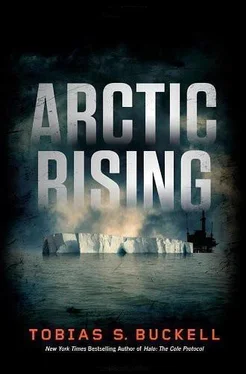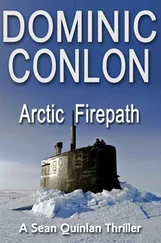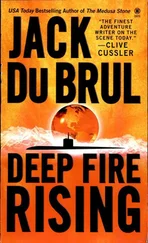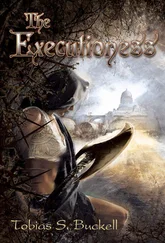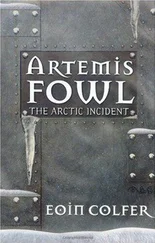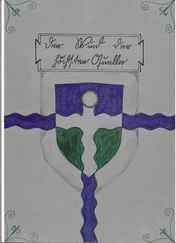“Do you want a pet Polar Guard pilot? Another person who owes you a big debt? I have to understand what I’m getting into, Vy. Because there’s a lot that’s happened to me lately.”
Vy softened. Somewhat. She sat down in her chair and put her legs up on her desk. “Chernov?”
“Yah?”
“Will Anika owe me anything for my getting her to Greenland?”
“No. This is not business,” Chernov said. “This is personal favor. This is because we like you. This is because, when we were in The Greenhouse that night, Vy thought you looked interesting. She wanted to get to know you better.”
Anika shuffled her way over. “I don’t know how to repay you.…”
“Just let it be,” Vy said softly. “I can’t get you all the way down to the Polar Guard station in Nuuk. That’s where you told me you wanted to get to, this morning. But I can get you to Upernavik; it’s up the coast a ways. And you’ll need to avoid getting picked up.”
“Because I’m wanted?” Anika asked, grateful to be talking about something else.
“Greenland’s got this guest worker obsession. You can fly into Greenland and automatically get a monthlong pass to wander around the island and even do temporary work. The diamond and ruby mines are always hiring, and the more the ice melts, the more they can drill. Greenland doesn’t have enough workers for the interior, so the state-run concessions are always bringing in guest workers.”
“Oh, yeah. Right.” The Greenlanders were mostly First Nations people, with some Danish background. They’d encouraged First Nations peoples to emigrate from Northern Canada, Alaska, and Russia. But as the glaciers receded and Greenland’s interior released a bounty of natural resources, there was more work than people in Greenland. Companies had to reach out to find workers, and they trickled in from Africa, the United States, and Northern Europe.
There had been protests and some strikes by international workers who ran out of their three-month stays, demanding to be treated fairly and given a chance to apply to become Greenlanders, but the Greenlanders didn’t want to become minorities in their own country. And they were First Nations peoples. They’d seen the rush to Northern Canada’s newly opened and ice-free land displace enough Inuit there. They knew history. They were nervous, and as a result, Greenland remained obstinate about the three-month stay.
Pay was generous enough, they noted, that one could work for three months, then come back the next year, and still make a yearly salary.
“They spend good money to run background checks on everyone’s ID who enters the major ports,” Vy said. “And have the best counterfeit detection systems I’ve come across. So it’s less risky to smuggle you into Upernavik. We’ll give you a fake passport to flash once you’re inside Greenland, but if they pick you up and actually run it, chances are you’re in trouble.”
“I understand,” Anika said. “But I have to go.”
“I’ll make the arrangements,” Vy said. Then added, “And get you some track pants. There’s a convenience store at the end of the block, if you give me your measurements, I can have Chernov get you some replacement clothes.”
Anika shook her head. “Let me borrow his jacket, if I can do it. I don’t want to be a bother.”
“No bother,” Chernov said.
“You don’t want to run into any cops,” Vy said.
But Anika pressed on. “No, I need to do something. I can’t just sit here while everyone does all this for me.”
Vy nodded, opened a drawer, and tossed Anika a thick roll of cash held together with a rubber band.
“Don’t trust Chernov’s sense of style?” she asked.
For the first time in several days, Anika laughed.
It was just a small chuckle. And it hurt: her ribs shot pain up her sides.
But it felt good.
Down toward the docks Anika found a thrift shop she’d eyed a few times before while on the way to The Greenhouse. There were no cameras in the ceiling that might recognize her as she pulled the hood off Chernov’s oversized coat to reveal her face. Tired-looking mothers and burnt-out young men with tattoos wandered the racks, and the store smelled of antiseptic.
And there were some good finds: jeans with thermal lining, a thick, gray wool turtleneck, an oversized fisherman’s jacket that came down past her knees that contained a multitude of useful pockets.
She paid and changed into these, folding Chernov’s jacket away into a shopping bag, then continued through the store until she had three or four days’ clothes.
At a small convenience store she packed everything into a backpack, and then purchased two disposable phones.
The clerk, a teenager with tiger tattoos on her forearms that fluoresced, sighed. “I can’t take cash for those,” she announced, reciting it tonelessly, obviously having memorized it. “You need to let me photocopy some form of ID, or pay with a credit card.”
Anika slid the clerk more than she’d make in a week. “I was attacked,” she explained. “They took my wallet and everything in it and my phone. I had to go to the bank to get them canceled, and get some money for myself for the week.”
The clerk eyed the money, and a pink tongue briefly licked an upper lip. She looked at the bruises on Anika’s neck and her scuffed knuckles. “Then why two of them, eh?”
“Work.” Anika held up one phone. “Personal.” She held up the other.
“Yeah. Okay.”
The money disappeared with the pass of a hand.
Outside, Anika ripped the phone open, activated it, and checked her voice mail. Two disposable phones, maybe she’d buy some more before leaving for Greenland.
This was how criminals stayed untraceable, right?
There was a message on it from Anton, one of the two agents from Resolute, with a brief comment about him having some new information. “Call me back,” he said cheerfully on the recording.
It had been left before Commander Claude had handcuffed her.
* * *
Anton betrayed no surprise at the sound of her voice when he picked up. “Anika Duncan, you’re in great trouble. I was not expecting you to ever call after I heard about what happened.”
“You work very late,” she said. “I was wondering if you would answer.”
“Your commanding officer was almost killed. Two MPs were killed. All of this as follow-up to the attack on your airship. I am drinking lots of coffee, and there is much adrenaline. And paperwork.”
“Michel is okay?” Anika asked, shocked, and relieved.
“Not okay. He was airlifted out to burn ward. Critical, but alive.”
“Thank God.” Anika rubbed her forehead. “When I saw him on the ground, I was sure he was dead.”
“Anika, what are you doing here? Why are you running?”
“People keep trying to kill me, Anton. First it was the Kosatka, then someone attacked me on the road back from Arctic Bay.” She summarized everything that had happened for him, but left out where she was calling from, and anything about Vy. “I don’t trust anyone.”
“You are not investigator.” Anton’s voice was tight and stressed. She noticed he was dropping articles from his speech, like “an” or “the” at random. English was not his first language, and as he got stressed, it was getting harder for him to focus. “You think you can solve this alone? Like Nancy Drew? Come into protective custody, we can help. You are wanted for questioning, you are not prime suspect.”
He said that last thing with such a heartfelt plea. “I believe you,” she said. “But what happens once I’m locked up and you’re investigating? I become a target, again, Anton. I don’t want to be a target.” She rubbed her neck.
Читать дальше
